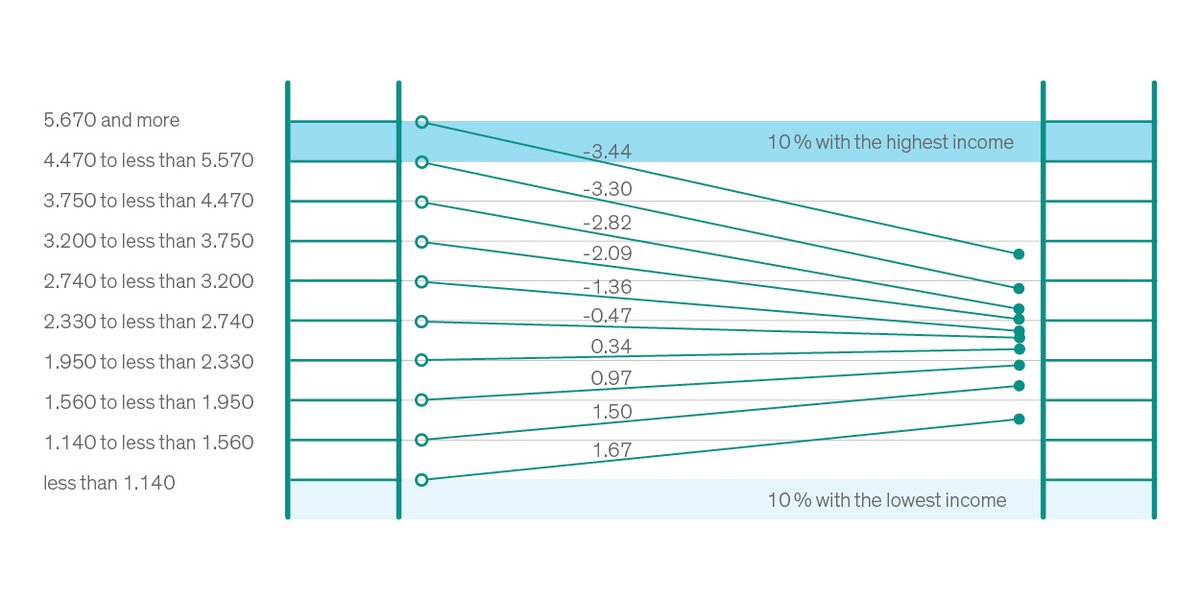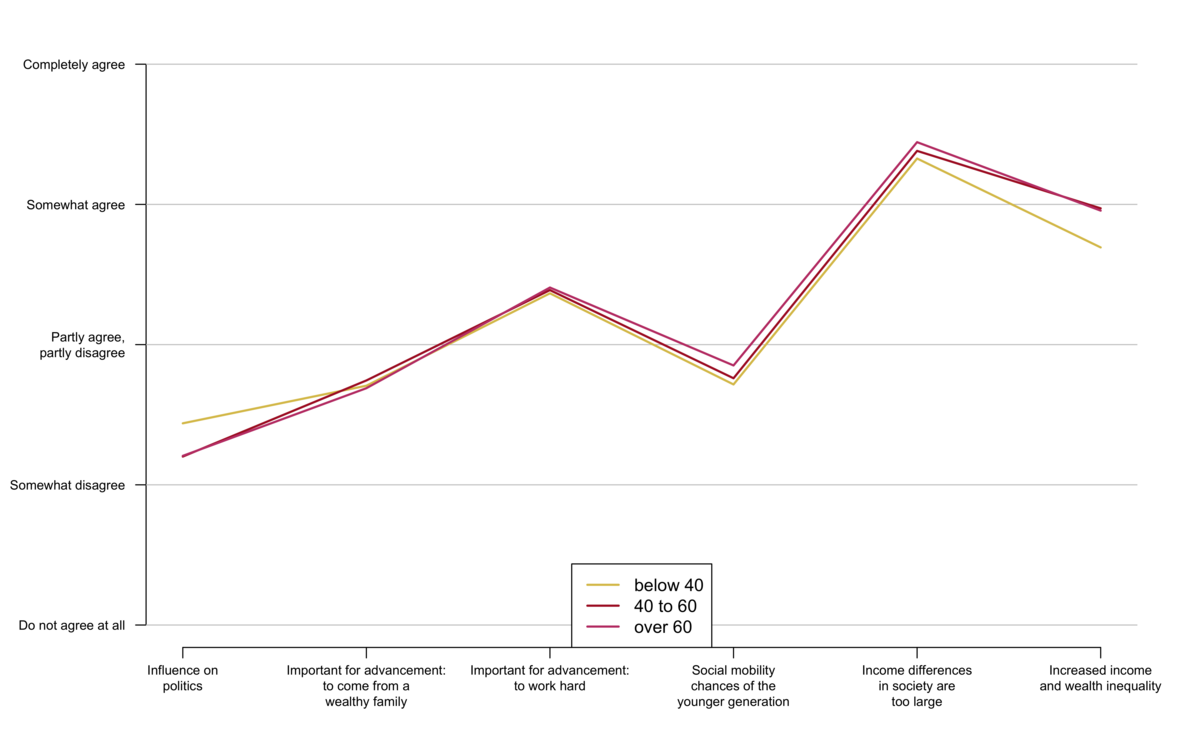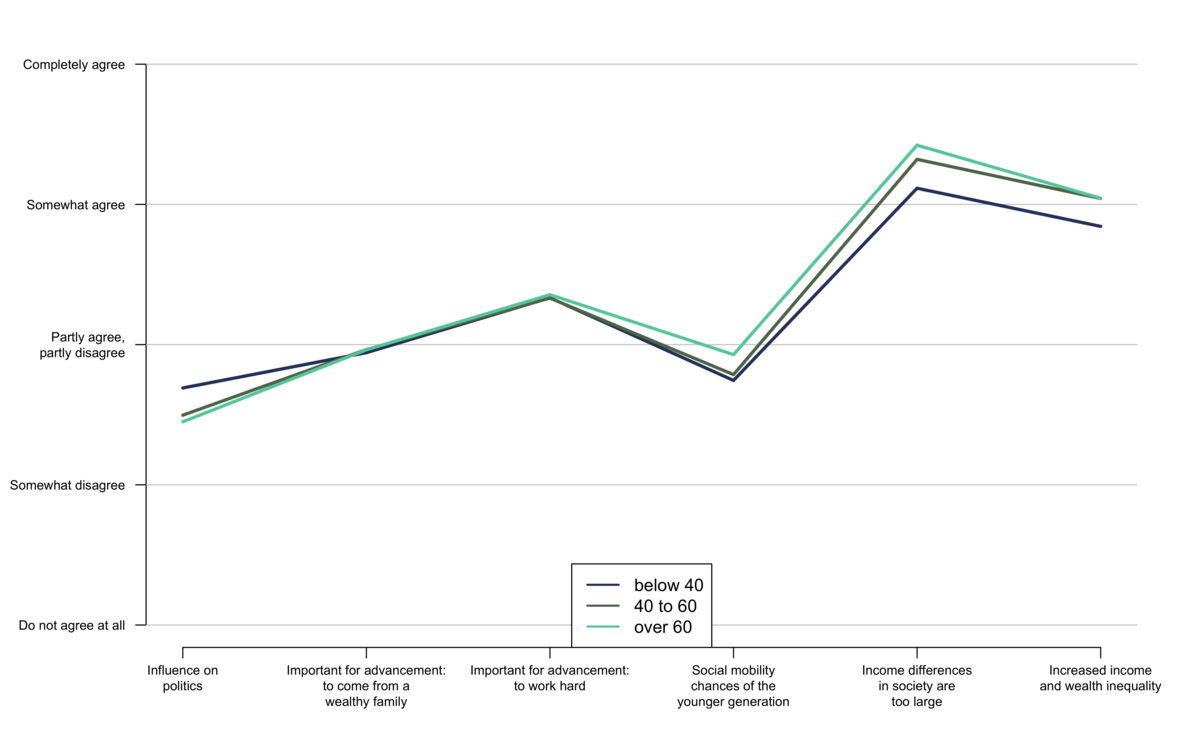
Fact check
The Inequality Barometer
We appreciate your interest in our research. Here, you can learn more about the results of the Inequality Barometer, a project of the Cluster of Excellence "The Politics of Inequality".
The following two figures show people's perceptions in Germany on six different topics. Do you find these assessments understandable? How did you vote?"
Subjective Assessments in a Fact Check
Let's take a closer look at the attitudes of the population and compare them, where possible, with objective indicators.
Do I have the possibility to influence politics?
Yes and no. A scientific study found that Germany ranks in the middle compared to other European countries. Similar to most of our neighboring countries, Germany scores 0.6 on a scale from 0 (no political participation) to 1 (full political participation). There are fewer opportunities to influence politics in Poland (0.4), and more in Switzerland (0.8).
Wealthy Family or Hard Work?
According to the Inequality Barometer, people in Germany consider hard work more important than coming from a wealthy family. The facts are complex, but the impact of family background on education is well-documented. Educational attainment depends not only on individual effort but also significantly on social background: over half (54 percent) of children from families with university-educated parents attain a university degree themselves, whereas only around one-fifth (17 percent) of children from parents with lower educational backgrounds go on to higher education.
Are you better off than your parents?
When asked whether young people today have better upward mobility compared to their parents, most people are skeptical, according to the Inequality Barometer. The fact is: over recent decades, more and more women in West Germany have achieved career advancement compared to their fathers' positions. For men, however, there have been no significant changes.
“The income disparities in Germany are too large!”
A large number of people in our survey agree with this statement. And indeed, there are significant differences: the top 20 percent of households earn about four and a half times as much as the bottom 20 percent. However, this income inequality has changed little over the past 20 years.
Wealth inequality is even more pronounced: the top 10 percent of the wealthiest individuals in Germany hold about 60 percent of total wealth. The bottom half of the population owns only a very small portion of it - just under 4 percent. These figures, too, have remained largely stable over the past 20 years.
How rich am I really?
One more thing needs to be clarified: do people assess their income situation realistically? The answer is no! In particular, individuals with (very) low and (very) high incomes tend to misjudge their circumstances. Low-income individuals overestimate their income situation, while high-income individuals underestimate their position.
The Income Ladder
On the left-hand side, the income ladder shows the actual income level and its distribution across the population in 10% increments. On the right-hand side, you can see the income level at which people categorise themselves.

Consequences of Misjudgments
(Mis-) Judgments can lead to real consequences: if the actual extent of inequality is underestimated, it is automatically perceived as less problematic. This, in turn, can influence political voting behavior or attitudes toward upward mobility and wealth taxation—often to one’s own detriment, frequently without realizing it.


